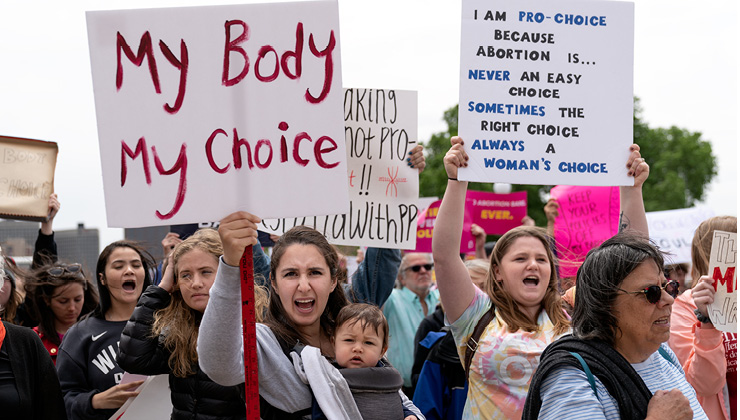Nestor Nuño discuss the focus of mainstream global health priorities on HIV/AIDS. He argues that despite the benefits of global health interventions for vulnerable populations, their logic and design overshadow different day-to-day structural factors and health needs. As a consequence, new forms of violence and discrimination emerge, reinforcing and perpetuating vulnerability and inequalities.
In my chapter for Gender, Global Health, and Violence, I analyse the specific case of Indonesia’s waria living in the city of Jogjakarta. The term waria is currently used to describe the male-to-female trans community of Indonesia. Waria are a social group historically discriminated against and excluded in Indonesia because of their gender identity. Waria usually belong to the most marginal social strata and subsist in a context of constant vulnerability, employed in temporary, informal, and precarious jobs without regular income.
Indonesia´s waria are also generally known as a social group who carry HIV/AIDS in the country. HIV/AIDS has been a public health issue in Indonesia since the late-1980s, and waria are categorised as a population at risk for HIV/AIDS, based on data regarding prevalence and transmission. As a result, global health interventions with waria are mainly focused on HIV/AIDS prevention and treatment programmes.
These interventions, however, fail to reach their potential due to the overshadowing social dimensions of HIV/AIDS. Societal perceptions portray waria as carriers of the disease, and as sinful and immoral in the eyes of God. There is a common belief that HIV/AIDS is a divine curse that God sends waria as punishment for their gender identity and corrupt sexual behaviour. In addition, waria have had difficulties in accessing and receiving medical care due to the violence embedded in local, national, and international health priorities and processes.
For decades, different non-governmental organisations (NGOs) have been promoting HIV/AIDS prevention programmes such as the promotion of condoms among waria sex workers. These programmes address the disease from a perspective centred around individuals with specific and measurable behavioural risk factors and biomedical indicators. While interventions of this kind can lead to remarkable outcomes, such as important levels of acceptance and awareness of condom use, they can also reinforce discrimination against sex workers due to other forms of violence that emerge from power relations.
For example, despite the awareness of waria sex workers regarding condom use, the waria who participated in my research told me that some clients are still reluctant to use condoms for two principal reasons. Clients think that waria might suspect they have a sexually transmitted disease and, secondly, clients report less pleasure during intercourse. Consequently, regular clients attempt to negotiate condom use and sway waria with arguments regarding their responsible nature and ‘clean record’. Ultimately, some waria concede to regular clients’ wishes in order to keep a consistent and reliable source of income. Some waria perceive this practice as safe, believing that regular clients have had no other sex partners. However, in practice, oftentimes regular clients also have sex with their spouses and other sex workers, which greatly magnifies the risk of HIV/AIDS transmission.
The construction of HIV/AIDS as an individual matter rejects the possible impact that collective, socio-cultural, and structural factors have on the transmission, prevention, and treatment of the disease. Another important point to discuss are the difficulties that waria face while trying to address health problems other than HIV/AIDS. Waria generally have encountered obstacles accessing health services, as the result of multiple entangled dynamics of marginalisation.
For example, to receive public healthcare attention in Indonesia, it is mandatory to have a valid identification card in the region of residence. However, waria who were born outside the Jogjakarta region and moved to escape domestic violence, social discrimination, or ostracism are usually unable to obtain a valid identification card, as relatives of displaced waria have to sign a legal document authorising the change of residence. Families of displaced waria commonly refuse to sign the document due to the shame of having a waria in the family.
Consequently, there is an indeterminate number of waria in the city of Jogjakarta without social, political or legal recognition. This example represents an exercise of structural violence as waria are stripped of their legal status and right to health care due to norms and policies that do not consider their specific conditions of vulnerability.
The construction of HIV/AIDS as an individual matter rejects the possible impact that collective, socio-cultural, and structural factors have on the transmission, prevention, and treatment of the disease.
This violence affects particularly those waria who do not live with HIV/AIDS. While health access and care for HIV-positive waria (regardless of possession of an identification card) is guaranteed thanks to different agreements between the NGOs assisting waria and the local government, undocumented HIV-negative waria have to pay out-of-pocket for public health services. These amounts are prohibitive for waria because of their fragile socio-economic status. Given the dissatisfaction with the existing NGOs, some undocumented waria have created their own legal organisations to negotiate directly with the local government and health authorities and provide identity cards and free healthcare access to undocumented waria.
These examples evidence the inadequacy of some states and global health schemes to provide appropriate healthcare for vulnerable populations, such as waria, and the need to understand global health as a conglomerate of contextual social and structural relationships and dimensions that go beyond biomedical indicators and pre-defined outcomes. The example of Indonesian waria also highlights how well-intentioned global health interventions can result in increased vulnerabilities and harms for specifically gendered populations, unless the interventions are based on the experiences and lived realities of those populations and take seriously these populations’ expertise and knowledge about their own health needs.
The views, thoughts and opinions expressed in this blog post are those of the author(s) only, and do not necessarily reflect LSE’s or those of the LSE Centre for Women, Peace and Security.
Image credit: Flikr CC BY 4.0



